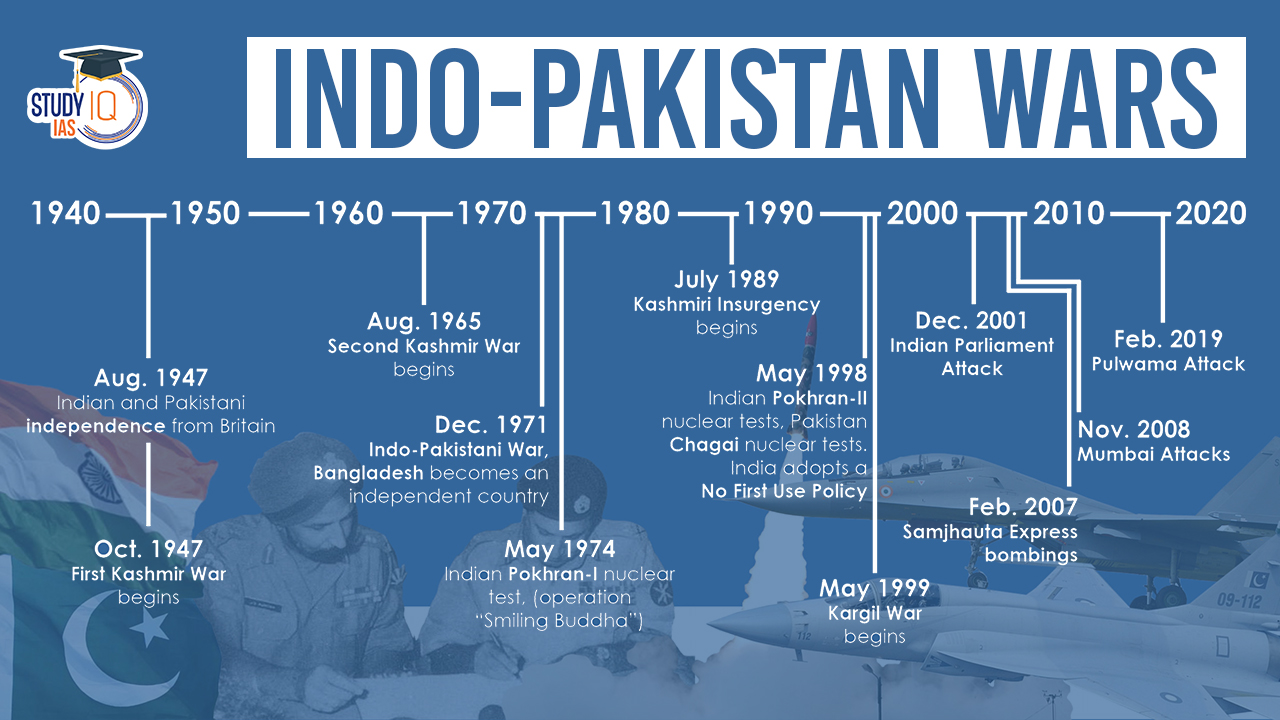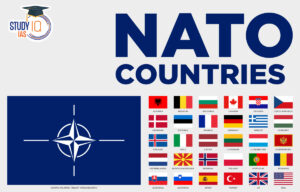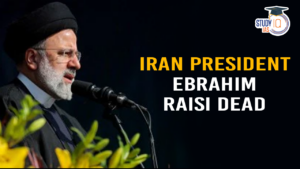Table of Contents
Context: The Pahalgam Terror Attack, which killed 26 tourists on April 22, 2025, has caused a serious deterioration in Indo-Pakistan ties. The Indus Waters Treaty has been suspended, the Attari-Wagah border has been closed, and diplomatic ties have been downgraded as part of India’s aggressive border control and diplomatic actions against Pakistan. Union Home Ministry has ordered the states to conduct mock drills on 7th May 2025 to evaluate civil defence preparedness. It has decided to organise the Civil Defence Exercise and Rehearsal across the 244 categorised Civil Defence Districts of the country.
In response, Pakistan has taken its own actions, such as securing its land borders and airspace and threatening to halt bilateral deals. India and Pakistan are now in a risky strategic standoff as a result of this circumstance. In this article, you will get a List of Indo-Pakistan Wars and their background.
Indo-Pakistan Wars and Conflicts
India and Pakistan have engaged in four wars since 1947, primarily over the Kashmir region. The 1947-48 conflict ended in a stalemate. The 1965 war remains disputed. The 1971 war, sparked by the Bangladesh independence movement, resulted in a major Indian victory. The 1999 Kargil War saw India reclaim territories. Additionally, conflicts like the Siachen conflict (1984–2003) and the 2001–2002 India–Pakistan standoffs have added to the regional tensions.
India and Pakistan have been involved in several wars and conflicts since gaining independence in 1947:
- First Indo-Pak War (1947-1948): Fought over the Kashmir region soon after independence. Ended in a ceasefire and the establishment of the Line of Control (LoC).
- Second Indo-Pak War (1965): Another conflict over Kashmir. Ended with the Tashkent Agreement in 1966, mediated by the Soviet Union.
- Indo-Pak War of 1971 (Bangladesh Liberation War): Sparked by the Bangladesh independence movement, leading to the creation of Bangladesh. A decisive victory for India.
- Kargil War (1999): Conflict in the Kargil district of Jammu and Kashmir. India regained control of the territories occupied by Pakistani forces.
India Orders States to Conduct Civil Defence Mock Drill on May 7
Significant conflicts and standoffs Between India and Pakistan
- Siachen Conflict (1984-2003): Military engagement over the disputed Siachen Glacier in the northern part of the Kashmir region.
- 2001-2002 India-Pakistan Standoff: Tensions escalated after the Attack on the Indian Parliament in 2001, leading to a military standoff. The situation was de-escalated through diplomatic efforts.
- 2008 Mumbai Attacks: Tensions significantly increased as a result of the terrorist attacks in Mumbai, which India attributed to groups headquartered in Pakistan. Pakistan sent troops toward the border and alerted its air force. Once more, diplomatic measures assisted in defusing the situation.
- 2016 Uri Attack: India launched retaliatory “surgical strikes” throughout the Line of Control in response to a terrorist attack on an Indian Army camp in Uri, Kashmir. Tensions were further increased by this action.
- 2019 Pulwama Attack and Balakot Airstrikes: Indian airstrikes on Balakot within Pakistan after a suicide attack on a CRPF convoy in Pulwama, Kashmir, which was claimed by a terrorist organisation based in Pakistan. An Indian pilot was apprehended and subsequently freed as Pakistan responded with its airstrikes. Conflict dangerously escalated throughout this time.
- Developments After 2019: Tensions have remained high since India revoked Article 370 in Jammu and Kashmir in August 2019, and ceasefire violations along the Line of Control have persisted.
Also Read: Kargil Vijay Diwas
History of Conflict Between India and Pakistan
- India and Pakistan have fought four wars since their independence from the British Empire in 1947: 1947–1948, 1965, 1971, and 1999.
- The 1999 war, also known as the Kargil War, was fought when both countries had nuclear weapons. The war ended with a decisive Indian victory.
- The conflicts have been caused by border disputes, the Kashmir problem, water disputes, and terror controversies.
- The Kashmir conflict has been the catalyst for every war between the two countries, except for the 1971 war.
- The two countries have also engaged in numerous armed skirmishes and military standoffs.
- In 1966, negotiations in Tashkent concluded with both sides giving up territorial claims and withdrawing their armies from the disputed territory. However, conflict in South Asia reignited a few years later.
List of Indo-Pakistan Wars From 1947-2025
| War/Conflict | Year | Details |
| First Kashmir War | 1947 | Started over the accession of Jammu and Kashmir. Ended with a ceasefire and the establishment of the Line of Control. |
| Second Indo-Pak War | 1965 | Fought for 17 days, primarily over Kashmir. A ceasefire was declared after intervention by the Soviet Union and the USA. India had an upper hand as Pakistan caused an insurgency. |
| Bangladesh Liberation War (1971) | 1971 | Sparked by the Bangladesh independence movement. India intervened, leading to the creation of Bangladesh. The Shimla Agreement later returned gained territories to Pakistan. Over 90,000 Pakistani prisoners of war were taken. |
| Kargil War (1999) | 1999 | Pakistani troops infiltrated into Indian territory. India launched a military and diplomatic response, regaining control within two months. International pressure, including from the USA, forced Pakistan to withdraw. Pakistan admitted to over 4,000 casualties and considered it a major defeat. |
| Siachen Conflict | 1984-2003 | Military engagement over the disputed Siachen Glacier in Kashmir. |
| 2001-2002 India-Pakistan Standoff | 2001-2002 | Tensions escalated after the attack on the Indian Parliament. A military standoff ensued, de-escalating through diplomatic efforts. |
| Surgical Strikes | 2016 | India conducted surgical strikes on terrorist launch pads across the Loc, in response to the Uri attack. |
| Balakot Airstrikes | 2019 | In retaliation for the Pulwama terror attack, the Indian Air Force conducted airstrikes on terrorist camps in Balakot, Pakistan |
Indo-Pakistani War 1947
Background
The first war between India and Pakistan, known as the First Kashmir War, took place in October 1947. The conflict stemmed from the accession of the princely state of Jammu and Kashmir to India. After the partition by the British, princely states were given three options: accede to India, accede to Pakistan, or remain independent. Maharaja Hari Singh, the ruler of Jammu and Kashmir, opted to accede to India.
Conflict
The majority Muslim population in Jammu and Kashmir, along with tribal Islamic forces supported by Pakistan, led to the occupation of some parts of the princely state. Facing this threat, Maharaja Hari Singh sought military aid from India, ultimately acceding to India. The issue was taken to the UN Security Council, resulting in Resolution 47 on April 22, 1948, and the establishment of the Line of Control.
A ceasefire was declared at 23:59 hours on January 1, 1949, with India having control over two-thirds of Jammu and Kashmir, and Pakistan gaining Gilgit-Baltistan and Azad Kashmir. The territory controlled by Pakistan is often referred to as Pakistan-Occupied Kashmir (POK).
Indo-Pakistani War 1965
Background
The Second Indo-Pak War in 1965 had roots in the lingering Kashmir dispute. Pakistan, disturbed by memories of the 1947 war, attempted to infiltrate Kashmir through Operation Gibraltar, aiming to provoke an insurgency in Indian-administered areas.
Conflict
India responded with a full-scale military operation against West Pakistan. The war lasted for 17 days, witnessing significant casualties on both sides. It featured some of the largest tank battles since World War II. Intervention by the Soviet Union and the USA led to a ceasefire, with India having the upper hand due to Pakistan’s instigation of insurgency.
Indo-Pakistani War 1971
Background
The 1971 war, also known as the Bangladesh Liberation War, was sparked by the political turmoil between East and West Pakistan. Bangladesh, formerly East Pakistan, sought independence due to disputes between Sheikh Mujibur Rahman, Yahya Khan, and Zulfikar Ali Bhutto.
Conflict
Operation Searchlight by Pakistan led to widespread atrocities, prompting millions of Bengalis to flee to India. India intervened in support of the Bangladesh Liberation Movement. Pakistan’s pre-emptive strike on India initiated the war. Indian forces captured significant territory, and the Shimla Agreement later returned some areas to Pakistan. More than 90,000 Pakistani prisoners of war were taken, and Pakistan suffered substantial losses in the navy, air force, and army.
Indo-Pakistani War 1999: Kargil War
Background
The Kargil War in 1999 was primarily centred around the Kargil district of Kashmir. Pakistani troops infiltrated across the Line of Control.
Conflict
India responded with both military and diplomatic measures. Within two months, Indian forces reclaimed the occupied ridges. The fear of escalation forced the U.S. to pressure Pakistan to withdraw, leading to international isolation. Pakistan admitted to over 4,000 casualties and a loss in the conflict, marking a major defeat. The Kargil War highlighted the risks associated with nuclear-armed neighbours.
We’re now on WhatsApp. Click to Join
Indo-Pakistan Wars UPSC
India and Pakistan, post-independence in 1947, engaged in four wars primarily over Kashmir. The 1947-48 conflict resulted in a stalemate, the 1965 war’s outcome remains disputed, while the 1971 war, triggered by Bangladesh’s independence movement, ended in a major Indian victory. The 1999 Kargil War saw India reclaim territories. Additional conflicts include the Siachen engagement (1984–2003) and the 2001–2002 India–Pakistan standoff. Ongoing tensions involve border incidents and diplomatic talks for resolution. The Kashmir issue has been a catalyst for most conflicts.


 NATO Countries List 2026, Members, Funct...
NATO Countries List 2026, Members, Funct...
 India-Canada Relations, Evolution, Recen...
India-Canada Relations, Evolution, Recen...
 Iran President Ebrahim Raisi declared de...
Iran President Ebrahim Raisi declared de...




















